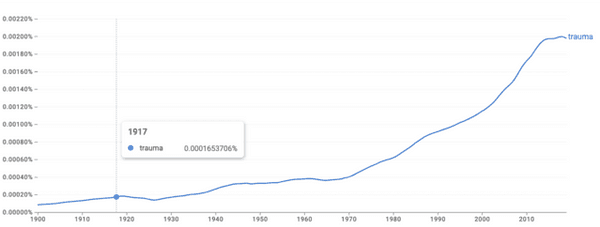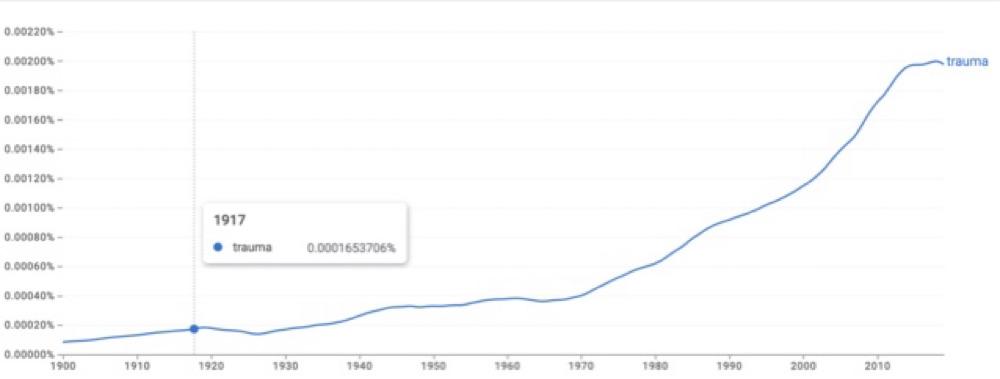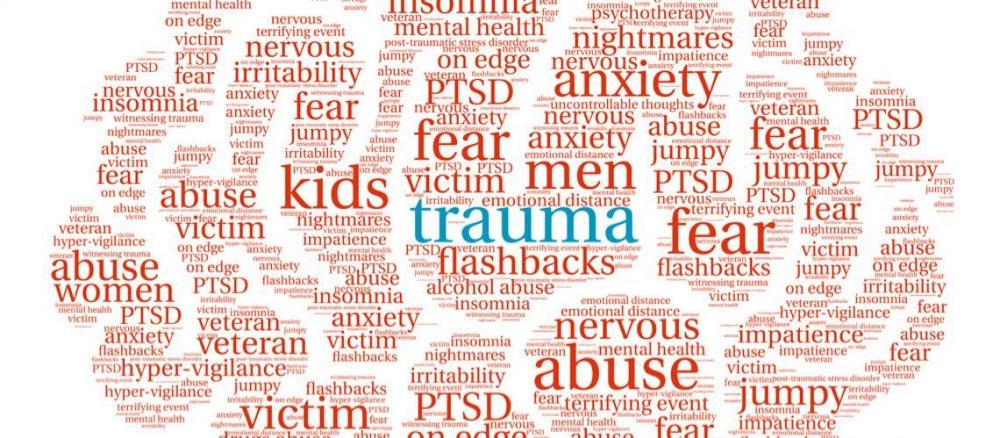5 Myths About Trauma
Curated from: psychologytoday.com
Ideas, facts & insights covering these topics:
14 ideas
·4K reads
15
Explore the World's Best Ideas
Join today and uncover 100+ curated journeys from 50+ topics. Unlock access to our mobile app with extensive features.
The Rise Of Trauma, The Word
More people are talking about trauma than ever before. The number of articles and books published about the topic has grown substantially in recent decades. Over 5.500 podcast titles contain the word “trauma,” while the TikTok hashtag #Trauma alone has over 6.2 billion views. Social media engagement (likes, shares, reactions) ranks in the hundreds of thousands for posts mentioning “trauma,” and the term has skyrocketed in popularity as a Google search term.
34
482 reads
5 (Of The Most Pervasive) Myths About Trauma
- Trauma Is A One-Off And Distinct Horrific Event
- Trauma Always Leads To PTSD
- Trauma Is Always A Disorder
- Trauma Has To Happen To Us Directly
- Trauma Changes Our Brain Forever
40
600 reads
Myth 1: Trauma Is A One-Off And Distinct Horrific Event
An isolated event that severely violates a person’s physical and psychological safety can significantly alter that person’s mental (and physical) health. But trauma isn’t always a distinct and horrifying event. Many people’s experiences of trauma are chronic (think growing up in a chaotic living situation or being repeatedly exposed to domestic violence, residing in a community with high crime rates, or experiencing emotional neglect throughout childhood).
33
436 reads
Trauma Might Not Even Be An “Event”
Trauma can also result from social and systemic factors like poverty and racism. Additionally, some research suggests that trauma can be transmitted from parents to offspring through mechanisms that influence DNA expression. Trauma is not, therefore, always a single event that changes you forever. It can manifest in different ways for different people, with vastly different outcomes and effects.
31
368 reads
Myth 2: Trauma Always Leads To PTSD
Post-traumatic stress disorder (PTSD) is a debilitating outcome of exposure to trauma(s) that entails intrusive and distressing memories of the traumatic event(s), avoidance of things associated with the traumatic event(s), impairments in memory and distorted thoughts or beliefs about one’s self or others (think: “I’m a bad person” or “Everyone’s out to get me”). Persistently depressed or agitated moods, feeling keyed up or on edge, and not being able to sleep or concentrate are other hallmarks of PTSD. So, too, is engaging in reckless or self-harming behavior.
32
298 reads
Some People Who Experience Trauma Develop PTSD. Others Do Not.
Yet only a small proportion of people exposed to traumatic events (including the unexpected death of a loved one, violence, sexual assault, natural disasters, or vehicular accidents) develop PTSD. In fact, it’s estimated that just around 6 to 8% of the population experiences PTSD symptoms during their lives.
While we should never discount PTSD’s severity and risk factors, it’s important to remember that experiencing trauma does not always lead to PTSD.
32
270 reads
Myth 3: Trauma Is Always A Disorder
Experiencing trauma can lead to or exacerbate a range of emotional, behavioral, and physical health issues. Disorders other than PTSD can result from trauma—including acute stress disorder, whose symptoms mirror those of PTSD but typically arise immediately after trauma exposure and last around one month; some personality disorders, eating disorders, anxiety, and depression. But this isn’t always the case.
30
238 reads
No Two People’s Responses To Trauma Are Exactly Alike
Many factors influence whether and how someone recovers from traumatic events, including their age at the time of the trauma, their personal coping skills and access to resources, what supports they have in place when trauma occurs, and whether they can access timely and effective interventions (like psychotherapy).
30
211 reads
Recovery From Trauma Of All Kinds Is Very Possible
Approximately half of all people exposed to trauma actually go on to experience “post-traumatic growth ”—a transformative and positive psychological experience in the wake of adversity that protects people from trauma’s negative effects.
So while traumatic events can be life-altering or effect significant changes in one’s emotional and behavioral health, this isn’t the case for everyone exposed to trauma—nor is it true of every traumatic experience.
31
206 reads
Myth 4: Trauma Has To Happen To Us Directly
We don’t have to directly experience one or more traumatic incidents in order to be negatively affected by them. “Vicarious” or “secondary” trauma refers to a profound shift in one’s worldview and sense of safety resulting from repeated exposures to other people’s trauma—say, by witnessing the aftermath of disasters or hearing about vivid details of someone else’s adversity. Mental health professionals, health care professionals, emergency responders as well as clergy members who minister to people suffering from trauma’s effects are at higher risk of vicarious trauma than the general public.
31
170 reads
Myth 5: Trauma Changes Our Brain Forever
Experiencing trauma can alter our nervous system’s threat detection capacities, keeping us constantly on edge and on high alert for danger. But there’s evidence that our brains remain “plastic” well into the latter years of our life. Effective interventions for trauma—including eye movement desensitization and reprocessing (EMDR), modified versions of dialectical behavior therapy (DBT), and cognitive behavioral therapy (CBT)—have each been shown to change neural activity, bringing about positive emotional and behavioral changes in those who recover from trauma-related disorders.
33
194 reads
Trauma: The Key Points
- Trauma does not have to happen to us directly in order for us to experience its negative effects.
- Trauma does not have to change our brain forever—ample evidence shows that recovery from trauma is very real and very possible.
- Trauma itself is not a disorder; it is an adverse experience that may lead to a disorder.
- Resilience is the most common response to trauma.
35
187 reads
Trauma: The Takeaway
Recovery from trauma of all kinds is very possible—a reality that myths about trauma tend to obscure. With the right kind of support, trauma survivors can learn to regulate intense and overwhelming emotions resulting from past adversity, rekindle a sense of physical and emotional safety, develop trusting relationships with others, and extract meaning from their past so that it stops hijacking their present.
33
167 reads
IDEAS CURATED BY
CURATOR'S NOTE
Despite its increasing popularity as a topic, many people still hold some serious misconceptions about what trauma actually is. Here are five of the most pervasive myths about trauma—and what research has to say about them.
“
Xarikleia 's ideas are part of this journey:
Learn more about mentalhealth with this collection
How to find common interests
How to be a good listener
How to overcome social anxiety
Related collections
Similar ideas
3 ideas
What Is Posttraumatic Stress Disorder?
google.com
9 ideas
Post-Traumatic Stress Disorder (PTSD)
healthline.com
13 ideas
How to recognise the symptoms of anxiety and get help
theguardian.com
Read & Learn
20x Faster
without
deepstash
with
deepstash
with
deepstash
Personalized microlearning
—
100+ Learning Journeys
—
Access to 200,000+ ideas
—
Access to the mobile app
—
Unlimited idea saving
—
—
Unlimited history
—
—
Unlimited listening to ideas
—
—
Downloading & offline access
—
—
Supercharge your mind with one idea per day
Enter your email and spend 1 minute every day to learn something new.
I agree to receive email updates



